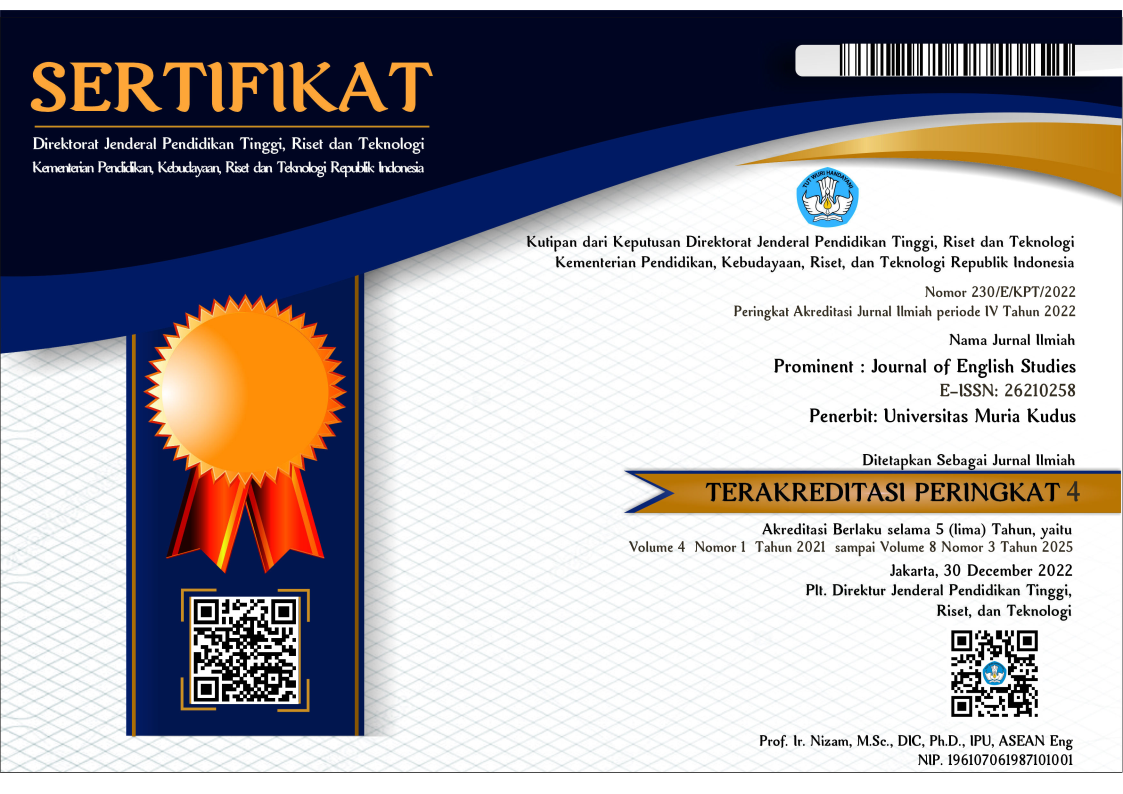THE EFL STUDENT TEACHERS' DEBATE PRACTICE: PROBLEMS AND SOLUTIONS
Abstract
Keywords
Full Text:
PDFReferences
Ali, A. & Sayed, A. (2013). Using debate in EFL classes. English language Teaching, 6(1), 147-152.
Alonso, R., & Junio, R. (2012). The importance of teaching listening and speaking skills (unpublished doctoral dissertation). Universitas Complvtensis Matritensis, Madrid.
Berdine, R. (1987). Increasing student involvement in the learning process through debate on controvesipnal topics. Journal of Marketing Education 9, 6 – 9.
Byrne, D. (1986). Teaching oral English. Longman.
Dale, P. and Wolf, J.C. (2002). Speech Communication Made Simple, 2nd Ed. New York: MiamiDade Community College.
Dundes, L. (2001). Small group debates: Fostering critical thinking in oral presentation with maximal class involvement. Teaching Sociology, 29(2), 237-243.
Swanwick, A., Erskine, C., & D'Cruz, R. (2003). Australia-Asia debating guide. North Melbourne: the Australian Debating Federation.
Farzaneh, A., Moomala, O. & Maryam, J. (2017). A case study of the development of an ESL learner's speaking skills through instructional debate. International Journal of Humanities and Social Science, 7(2), 120-126.
Fukuda, S. (2003). Attitudes towards argumentation in college EFL classes in Japan. Proceedings of the First Asia TEFL International Conference. Pusan, Korea.
Gebhard, J. G. (2000). Teaching English as a foreign or second language: a teacher self-development and methodology guide. Ann Arbor: The University of Michigan Press.
Juhana. (2010). Psychological factors that hinder students from speaking in English class. Journal of Education and Practice, 3 (12).
Kidd, A. (2002). The Oxford Union Rough Guide to Debating. The English Speaking Union. From http://www.britishdebate.com/resources/hboxfordguide.htm,
Linblad, M. (2011). Communication strategies in speaking English as a foreign language: In the Swedish 9th grade national testing setting. English Linguistics, 1-31.
Liu, M., & Jackson, J. (2008). An exploration of Chinese EFL students’ unwillingness to communicate and foreign language anxiety. The Modern Language Journal, 92(1), 71-86.
Littlewood, W. (1981). Communicative language teaching. Cambridge: CUP.
Pikulski, J. & Templeton, S. (2004). Teaching and developing vocabulary: Key to long-term reading success. Current Research in Reading and Language Arts, 15.
Rajasekaran, V. (2010). Strategies to solve students’ common communicative problems at engineering college level. MJAL, 2(5), 346-353.
Schroeder, H, & Ebert, D. G. (1983). Debates as a bussiness and society teaching technique. Journal of Bussiness Education, 58, 266 – 269.
Snider, A., & Schnurer, M. (2002). Many sides: Debate across the curriculum. New York: International Debate Education Association.
Ya-Ni, Z. (2007). Communication strategies and foreign language learning. US China Foreign Language, 5(4), 43-48.
DOI: https://doi.org/10.24176/pro.v5i1.7028
Article Metrics
Refbacks
- There are currently no refbacks.





